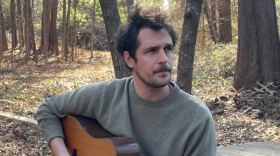Ask Americans to name people who led the fight for civil rights in the 1960s and figures Martin Luther King Jr. and Rosa Parks will quickly emerge. But Duke professor Michael Hardt argues that contemporary social protest movements have moved away from centralizing power and promoting figureheads. That observation is the thesis of his latest book “Assembly” (Oxford University Press/2017) co-authored by Antonio Negri.
Hardt argues that while the absence of political celebrities leads to more democratic movements, it can also make movements appear disorganized and ineffective to outside observers. In his analysis, Hardt presents an alternate power structure in which on-the-ground activists are the primary decision makers.
Host Frank Stasio speaks with Hardt, a professor of political theory in the Department of Literature and the co-director of the Social Movements Lab at Duke University about his take on the past and future of democratic movements.








